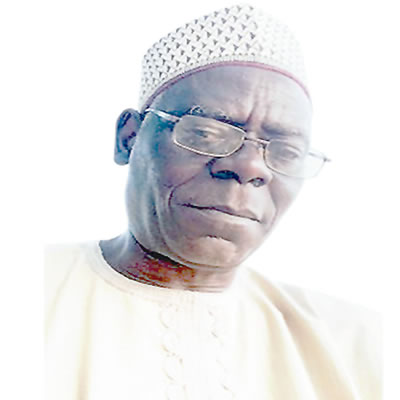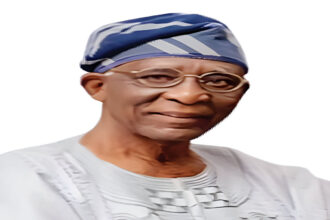A former general secretary of the Arewa Consultative Forum (ACF), Mr Anthony Sani, speaks with KUNLE ODEREMI on the planned protest by the youth from August 1, over economic hardship in the country, the response of President Bola Tinubu to the issues therein, concern over the likely consequences of the protest, among other issues.
WHAT is your impression about the prevailing socioeconomic and security situation across the country?
The prevailing socioeconomic situations in the country are unsavory, concomitant effects of removal of fuel subsidies and floating of the naira both of which have fueled the imported inflation which has unleashed the worst cost of living across the country. That is why there is simmering discontent swirling over the country among the citizens.
There are plans for another round of protests by the youth this time against the harsh economic realities and perceived inertia by the authorities to do the needful. What is your reaction as the government and its top officials argue that the protest is uncalled for?
Yes, the protest is a right of the citizens but, it is uncalled for, considering President Bola Tinubu has been on television appealing to fellow Nigerians for understanding, and that Nigerians should give him more time to fix the economy which is not a day’s job. That means the president is aware of the hardship which the removal of fuel subsidy has unleashed on the citizens, and is trying as far as efforts can go to bring the situations under control. This is because revamping an economy is not a matter of decree but of consciously directed efforts to make desires possible and then actualised.
There’s galloping inflation across the country such that the prices of food items have become highly prohibitive. It is one of the strands that those behind the protest are latching on. Isn’t it a sufficient ground for the people to be angry with their political leaders, particularly those elected to bring about a new dawn in relation to the well-being and welfare of the people?
Yes, it is the right of the citizens to be angry with their leaders over what happens in the polity. But the people are expected to be realistic about the capacity of the economy, more so that the president has acknowledged the hardship, and is trying to overcome the challenges. The reality is that Nigeria produces half of crude oil it produced in 2012.The same with the prices of crude oil and oil theft. The immediate past regime has accumulated debt of about N22.5 trillions through printing of the naira which the experts call Ways and Means. Even though the subsidies were about the only serious benefits by the people from oil, the removal became necessary because it was no more sustainable, and so not matter of choice, more so that the subsidies were fraught with corruption that steals our common wealth.
There are divergent views on the matter. How would you rationalise the claims and counter-claims by those in support of the protest, as well as those opposed to it and why?
Those opposed to the protests hinge their views on the fact that the president is already aware of the challenges and determined to overcome them through consciously directed efforts. For this group, the government does not need protests as reminder about the hunger and hardship. What is more, the protests could easily be hijacked and the nation thrown into anarchy. Those in favour of protests are those who believe protests and strikes are the only languages which the Nigerian government understands.
A similar protest took place in Kenya with the authorities shifting ground by meeting some demands of the Kenya protesters, e.g. dissolution of Government cabinet. Do you envisage such a development happening in Nigeria as some of the issues seem not different?
That such protests forced the government to respond does not mean Nigeria must follow suit. You might need to note that the president is already aware and making efforts to tame the situation. Mere change of guards does not automatically translate into performance. For examples, service chiefs have been changed several times but no significant efforts. The insecurity still abounds in some parts of the country. Also, note that for every circle of elections, 70 percent of members of National Assembly do not come back. That is to say 70 percent of members are new, yet the actions and attitudes of NASS have not changed to reflect new ideas. So, our challenges are due to our attitudes and the way we do things. That may explain why I advocate cultural renaissance.
To what extent has the wage award and other measures introduced by the federal and state governments addressed the excruciating hunger and frustration the man on the street has been going through due to official policies?
While I share the pains from the hardship, I am not sure astronomical increase in salaries for workers can bring down the inflation that has hyped the cost of living. Rather, the increase with corresponding productivity can be the only effective panacea.
How far-reaching is the Supreme Court judgement granting financial autonomy to local governments in the quest to wean that tier of government from state governors, as well as guarantee the effectiveness of governance at the grassroots? Many people differ on the judgment, based on the principle of federalism?
The Supreme Court is the highest court in the land. And since we practise democracy which is the rule of law, there can be no any other farreaching judgement more than that of Supreme Court. And unless we are agreeing that Nigeria is lawless, I believe the Supreme Court has cleared the coast for the local government council to manage for performance.
Is it the best way to go in the quest to restructure the country?
If governors complain of undue influence of the Federal Government and quest for devolution of power of the national government, they have no moral right to frustrate the local government. It is therefore the way to go.
There is a move in the Senate via a bill seeking to establish local government electoral commissions due to inadequacies of state electoral commissions that are largely tied to the apron string of state governors. Is this proper?
I do not buy the wisdom of establishing independent electoral commissions at local government. This is because just as state governors abuse state electoral commissions, local government chairmen would abuse their electoral commissions. The best arrangement is to abolish state electoral commissions and allow Independent National Electoral Commission to conduct all the elections the same day in order to reduce cost and prevent bandwagon effect. If Kenya can conduct all their elections same day, Nigeria can also do so. What is more, creation of local government electoral commissions amounts to undue multiplication of effort centres which is managerial imperfection.
Will such law insulate the LG electoral commissions from manipulation?
Establishment of electoral commissions at local government level is manifestation of gross managerial infections. Let INEC conduct all the elections the same day.
There is another issue I want to draw the attention of Nigerians to. When some people hanker for establishment of commissions for development in each of the six geopolitical zones, it is because they are ignorant of principles and practices of management, to wit, that multiplication of too many effort centres is manifestation of managerial imperfections. Such people want the six geopolitical zones to be another tier of government in line with their misguided calls for restructuring of the country to enable each zone to develop at its own pace. That is to say, they want Nigerians to live as if they are in different continents. And they do this in blatant disregard for the fact that narrowing of inequality is not only good economics but also good politics. A country where some sections are on cutting edge which some others are on knife edge cannot be united and be one for performance. Commission for each and every geopolitical zone is not necessary and, thus, superfluous. Management of local governments and states for performance is enough for socioeconomic development of the country.
READ ALSO: CAN youth wing distances self from planned protest








